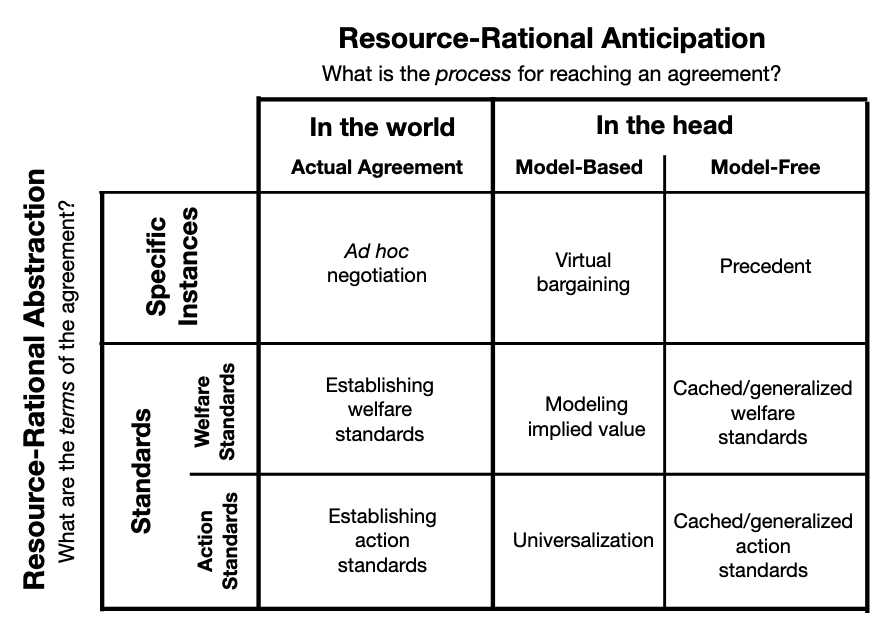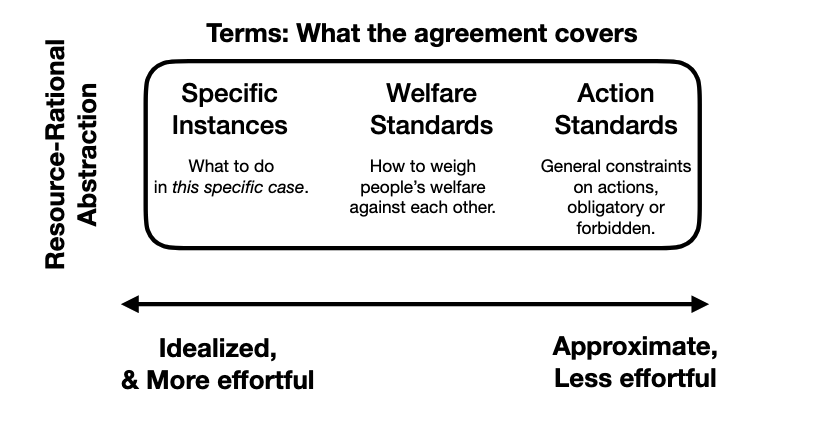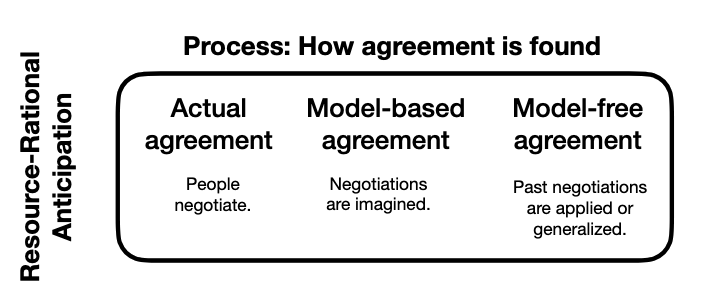Overview
According to @2023levineResource, the moral judgments that people make in situations of interdependent choice imply that human moral psychology is substantially contractualist, meaning judgments are based on what rational agents ought to do in order to achieve mutual benefit. Under the contractualist view, ideal moral decision-making involves assembling a group of individuals and agreeing to a solution that applies to a specific bargaining problem. However, this idealized agreement-seeking is often infeasible in the real world.
Instead, @2023levineResource propose resource-rational contractualism, which says that many apparently consequentialist (i.e., welfare-based) and deontological (i.e., action-based) moral judgments are actually resource-rational approximations of agreement-based ones.

The resource-rational framework divides idealized contractualism—actual bargaining—into the terms and process of agreement.
Resource-rational abstraction: the terms of agreement
Idealized terms apply narrowly to the choices people make in the current bargaining problem, which is highly costly. Instead, people can abstract over the private utilities of other agents—welfare-based standards—or the payoffs given by a joint action—action-based standards.

Welfare-based standards
To develop a welfare-based standard, a moral agent maximizes a utility function over the perceived welfare of others. The weightings applied to others’ welfare represents the terms of a bargain, and are subject to negotiation as in the ideal agreement-based method.
See also: Certain social emotions function to negotiate weights in welfare-based bargains, after Adams (1965)
Action-based standards
Action-based standards appear as rules and norms across interactions. Developing action-based standards involves the general resource-rational tradeoff between accuracy and generality: “rules are useful when the costs of their inevitable errors are outweighed by the benefits of frequent, cognitively cheap application” (19).
While other works on moral rule agree that they are cognitive heuristics, such rules are typically treated as approximations to utilitarian ideals, which maximize aggregate benefit rather than mutual benefit (i.e., outcomes predicted in game-theoretic bargains).
Action-based standards are especially amenable to cultural transmission in the form of explicit rules, norms, laws, etc.
Resource-rational anticipation: the process of agreement

Instead of engaging in actual bargaining, people perform approximations by making predictions about the bargaining outcomes. This can be both model-based—planning, simulation, etc. with a generative causal model—and model-free—generalizing from cached model-based computations.
References
- @2023levineResource, “Resource-rational contractualism: A triple theory of moral cognition”